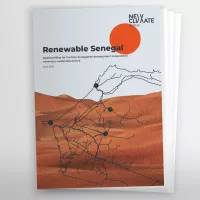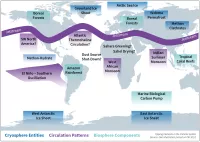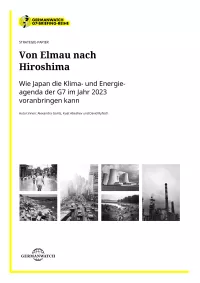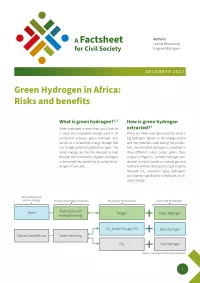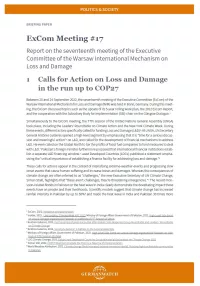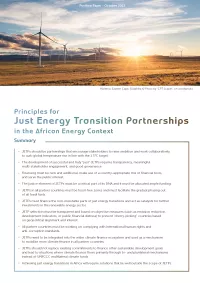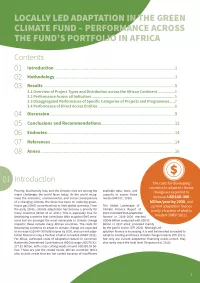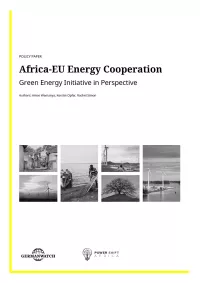Aktuelles zum Thema
While Senegal has had major success in expanding renewable energy – the variable nature of wind and solar energy and the existing electricity system means that further grid integration is starting to become a growing challenge. Moving forward, policy decisions to be taken will have a large influence over the role of fossil fuels in Senegal for the foreseeable future. This paper aims to provide an overview of the opportunities to support Senegal in its transition to a decarbonised, renewable energy system, including a discussion of the challenges associated with this transition and the role that Germany can play in overcoming them.
Germany’s G7 presidency is coming to an end, and the next Leader’s Summit in Hiroshima on May 19-21 is approaching fast. This means that there is little time left for the G7 to make tangible progress on the climate and energy agenda. In our policy brief, we outline the key issues for the G7's climate and energy agenda in Hiroshima and make recommendations on how Japan can advance the agenda in 2023.
Several countries are currently in the process of developing strategies for their future energy systems. These often include investments in green hydrogen. Especially for African countries with a great potential for renewable energies, reprocessing them into green hydrogen provides a promising opportunity. Co-authored with the Panafrican Climate Justice Alliance, our fact sheet provides an overview of the benefits and potential risks that the new sector offers to producing countries in Africa.
The 17th meeting of the Executive Committee (ExCom) of the Warsaw International Mechanism on Loss and Damage (WIM) took place ahead of COP27, where countries then agreed to establish new financing arrangements and a fund for Loss and Damage.
At the ExCom meeting, among other things, the 5-year rolling work plan was adopted, reflections on the working methods of the ExCom were debated and the cooperation with the Subsidiary Body for Implementation in the context of the Glasgow Dialogue was discussed. This report focuses on the latter.
The current energy crisis clearly demonstrates how the world remains dependent on fossil fuels. However, there is a number of countries that have a better standing than others. They took ambitious steps in climate mitigation and rapidly developed energy efficiency and renewable energies. Today, Germanwatch, NewClimate Institute and CAN International published the Climate Change Performance Index (CCPI) 2023, a ranking of the 59 largest emitters worldwide
The first Just Energy Transition Partnership (JETP) was announced with South Africa during the UN Climate Change Conference in Glasgow (COP26). Immediately after the announcement, other countries came forward and demonstrated their interest in establishing JETPs. By developing guiding principles for JETPs, we aim to help JETP stakeholders establish a matrix that they can use to assess JETP selection, design, implementation, and impact, in addition to providing civil society organisations with the tools they need to engage in meaningful policy advocacy and support their respective governments in developing new JETPs.
The Green Climate Fund (GCF) is the largest source of adaptation funding. This Policy Brief examined the extent to which current GCF-funded projects and programmes support adaptation at the sub-national or local level in African states. It does so by using the principles of locally led adaptation as a framework through which the portfolio of the GCF is analysed, with the purpose of providing recommendations for how the GCF can better integrate these considerations in its policies and approved activities in the future, especially for its second replenishment period.
This policy brief first summarises energy-related outcomes of the AU-EU summit, including the Global Gateway Investment Package for Africa, then analyses corresponding risks and opportunities, including suggested ways forward. Last but not least, the brief summarises key recommendations for AU-EU cooperation on energy.

